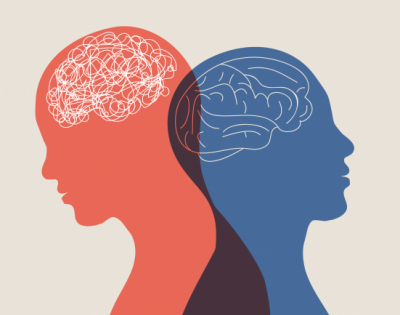Exploring Psychotherapy: Five Effective Approaches
Psychotherapy can help people with many emotional issues and mental health conditions. It can find out the root cause of the condition and ease the symptoms. The psychiatrist’s aim is to help the patient function and react to situations better. Here are the five types of psychotherapy methods you can consider.
1. CBT (cognitive behavioral therapy)
This type of psychotherapy aims to pinpoint beliefs and thought patterns that could have negative effects on one’s life. Addressing these patterns will come next. CBT is a goal-oriented psychotherapy method. The mental health provider will focus on the patient’s experience. Learning strategies to overcome the negative patterns is part of the therapy. Some of these strategies are the following:
Developing skills to manage stress
Practicing coping skills
Role-playing
Setting long- and short-term goals
Self-monitoring and journaling
Developing new ways to solve problems
CBT is a type of short-term therapy that encourages collaboration and active participation. Each session includes homework. The patient will practice exercises and set specific goals between appointments. Discussing experiences with the psychiatrist is necessary as well.
2. IPT (interpersonal psychotherapy)
The psychiatrist will focus on treating depression symptoms after a significant life change. IPT is a type of psychotherapy that focuses on improving one’s interpersonal relationships. It also encourages the patient to develop social skills to reduce distress. The initial IPT phase needs three weeks to gather information from the individual. The middle phase resolves the barriers associated with the individual’s mood. The final stage of this therapy takes two sessions.
3. DBT (dialectical behavioral therapy)
This type of psychotherapy comes from CBT. It practices some similar goals and methods. Like CBT, it is also based on evidence. The patient will learn how to focus on balancing change and acceptance. The opinions of some people on relationships may be different from those of others. Their truths are different from the truths of others.
4. Psychodynamic and psychoanalytical psychotherapy
Sigmund Freud’s psychoanalysis or theory of mind is the basis of this psychotherapy. It aims to uncover one’s unconscious thoughts that may affect present perceptions, feelings, or behaviors. These deep thoughts are often connected to the patient’s unresolved childhood experiences. This is a long-term therapy that may last for many years.
Each session often lasts for about 50 minutes. The patient must attend the scheduled visits one to four times each week. This therapy often lasts for about less than six months. The psychiatrist-patient relationship is crucial in this type of short-term therapy.
5. Humanistic psychotherapy
An individual’s features and traits are the focus of this treatment. It concentrates on self-image and how the individual sees the world. Humanistic psychotherapy seeks to determine how these perceptions affect an individual. Helping the patient become more self-aware is the main goal of this treatment. Here are some of the approaches to this technique:
Positive psychology
Person-centered therapy
Experiential psychotherapy
Existential psychotherapy
Gestalt therapy
The benefits
A mental health provider helps explore an individual’s behaviors and moods. Understanding one’s own emotions is possible. The patient can learn to express these emotions through this treatment. Knowing the benefits of psychotherapy can help an individual stick to the appointments.
It helps improve relationships. Mental health issues can be destructive to different relationships. Conflicts can result from mood swings and outbursts. Seeking psychotherapy can help ease the individual’s irritability and stop negative emotions.
It helps with depression. Studies show that this condition is the most common mental illness. This treatment can help resolve appetite changes, feelings of guilt, and sleep issues. It can even address seasonal affective disorder.
It can help with compulsions or obsessions. The mental health provider can examine behaviors and thought patterns. Breaking the cycles of obsessions and compulsions is always a priority. The sessions can stop the rituals and intense worry.
It can help with anxiety. This condition is also common in the United States. Research reveals that this mental issue affects about 18% of the population. Anxiety can cause many social problems. Psychotherapy can stabilize a patient’s emotions and behavior. Patients can learn how to control anxiety and reach their mental health goals.
Understanding the types of psychotherapy methods can help prepare you for your sessions
A mental health provider can determine what kind of mental issue you may be experiencing. Your symptoms may already be affecting your relationships, daily activities, or even career. The right therapy can give you the relief you need. Working with your mental health provider can help you regain stable emotions and behavior.
Become a new patient today or give us a call: 631-673-3233.

